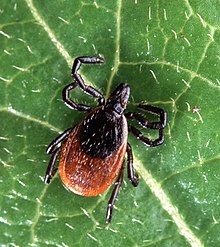
Did you know that a significant percentage of men lose the male sex chromosome in some of their cells as they age? About 40% of 70 year olds! This loss may explain why so many men die several years before women.
The loss of the male Y chromosome in some cells (mosaic loss) has health effects. It is associated with an increased risk of early death and some age-related diseases in men, such as heart disease and heart failure. This loss mainly happens in cells with a rapid turnover, such as blood cells, and does not happen in male reproductive cells.
A recent two part study in both mice and human males found that this Y chromosome loss resulted in heart muscle scarring (fibrosis), which led to increased risk of heart problems and heart failure. The researchers discuss a drug (pirfenidone) that may help with treatment.
Why is this happening? The researchers point out that as we age, more and more gene mutations are occurring, that is, the DNA of our cells accumulate mutations as we age. Some of them are due to our own choices, such as smoking, exposures to toxic chemicals, radiation, our lifestyle. Others are out of our control (e.g., aging).
From Science Daily: Loss of male sex chromosome leads to earlier death for men
The loss of the male sex chromosome as many men age causes the heart muscle to scar and can lead to deadly heart failure, new research from the University of Virginia School of Medicine shows. The finding may help explain why men die, on average, several years younger than women. ...continue reading "Many Men Lose the Male Sex Chromosome As They Age"

 We all get exposed to pesticides to varying degrees - whether from our water, foods we eat, inhaling them, or absorbing them through our skin (e.g., walking or playing on pesticide treated lawns). Unfortunately, studies show our exposure to the pesticide glyphosate (found in Roundup) is increasing each year.
We all get exposed to pesticides to varying degrees - whether from our water, foods we eat, inhaling them, or absorbing them through our skin (e.g., walking or playing on pesticide treated lawns). Unfortunately, studies show our exposure to the pesticide glyphosate (found in Roundup) is increasing each year. Glyphosate is the most widely used herbicide (it kills vegetation) in the US and the world. Nearly 300 million pounds of the pesticide are applied each
Glyphosate is the most widely used herbicide (it kills vegetation) in the US and the world. Nearly 300 million pounds of the pesticide are applied each  The United States has a growing problem. The number of cases of the always fatal Chronic Wasting Disease (CWD) is steadily spreading among wild game (elk and deer) and has now been found in 30 states. In
The United States has a growing problem. The number of cases of the always fatal Chronic Wasting Disease (CWD) is steadily spreading among wild game (elk and deer) and has now been found in 30 states. In  Symptoms of the disease: In chronic wasting disease there is a long incubation period, followed by the brain become progressively like a sponge - riddled with holes, along with deterioration in brain function, behavioral changes, and eventually death. A horrible slow death. There are no treatments or vaccines.
Symptoms of the disease: In chronic wasting disease there is a long incubation period, followed by the brain become progressively like a sponge - riddled with holes, along with deterioration in brain function, behavioral changes, and eventually death. A horrible slow death. There are no treatments or vaccines. For years, many individuals have joked that just looking at food makes them gain weight. Well, maybe the joke was not too far of the mark.... Recent
For years, many individuals have joked that just looking at food makes them gain weight. Well, maybe the joke was not too far of the mark.... Recent  Another
Another  More and more research over the past decade has stressed the importance of exercise for our health, but it turns out it is also important in slowing down tumor development. Yes - it actually reduces the growth of cancer.
More and more research over the past decade has stressed the importance of exercise for our health, but it turns out it is also important in slowing down tumor development. Yes - it actually reduces the growth of cancer. What to do to maintain or improve health? Eat a healthy diet rich in fruits, vegetables, whole grains, legumes (beans), seeds, and nuts. Get enough exercise or physical activity. Don't smoke. Maintain a healthy weight.
What to do to maintain or improve health? Eat a healthy diet rich in fruits, vegetables, whole grains, legumes (beans), seeds, and nuts. Get enough exercise or physical activity. Don't smoke. Maintain a healthy weight.
 The long awaited
The long awaited 
 However, the incidence of tick-borne disease in pets went down significantly, lower by about half - on properties treated with either treatment or both treatments.
However, the incidence of tick-borne disease in pets went down significantly, lower by about half - on properties treated with either treatment or both treatments.